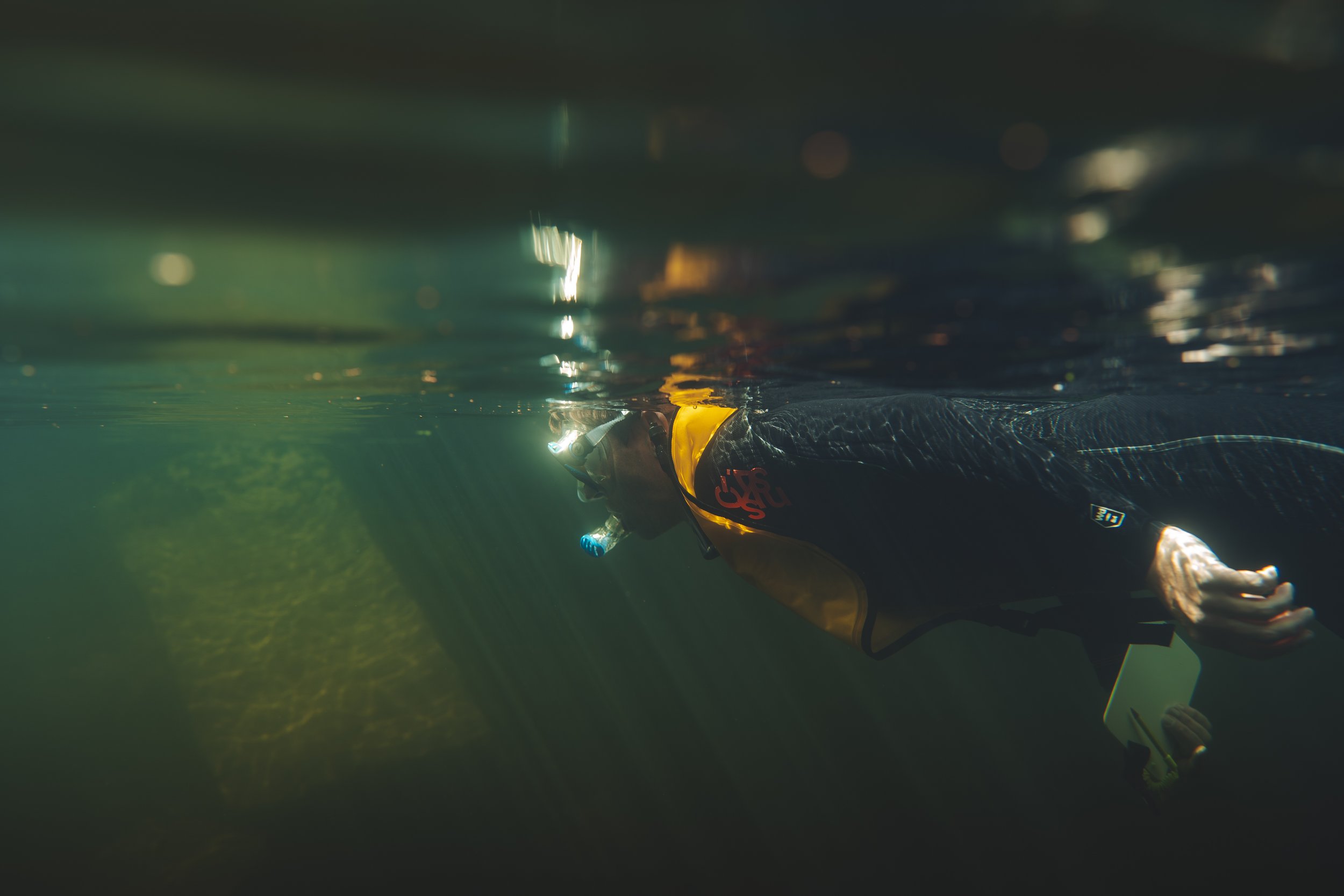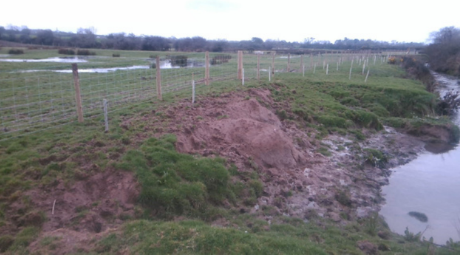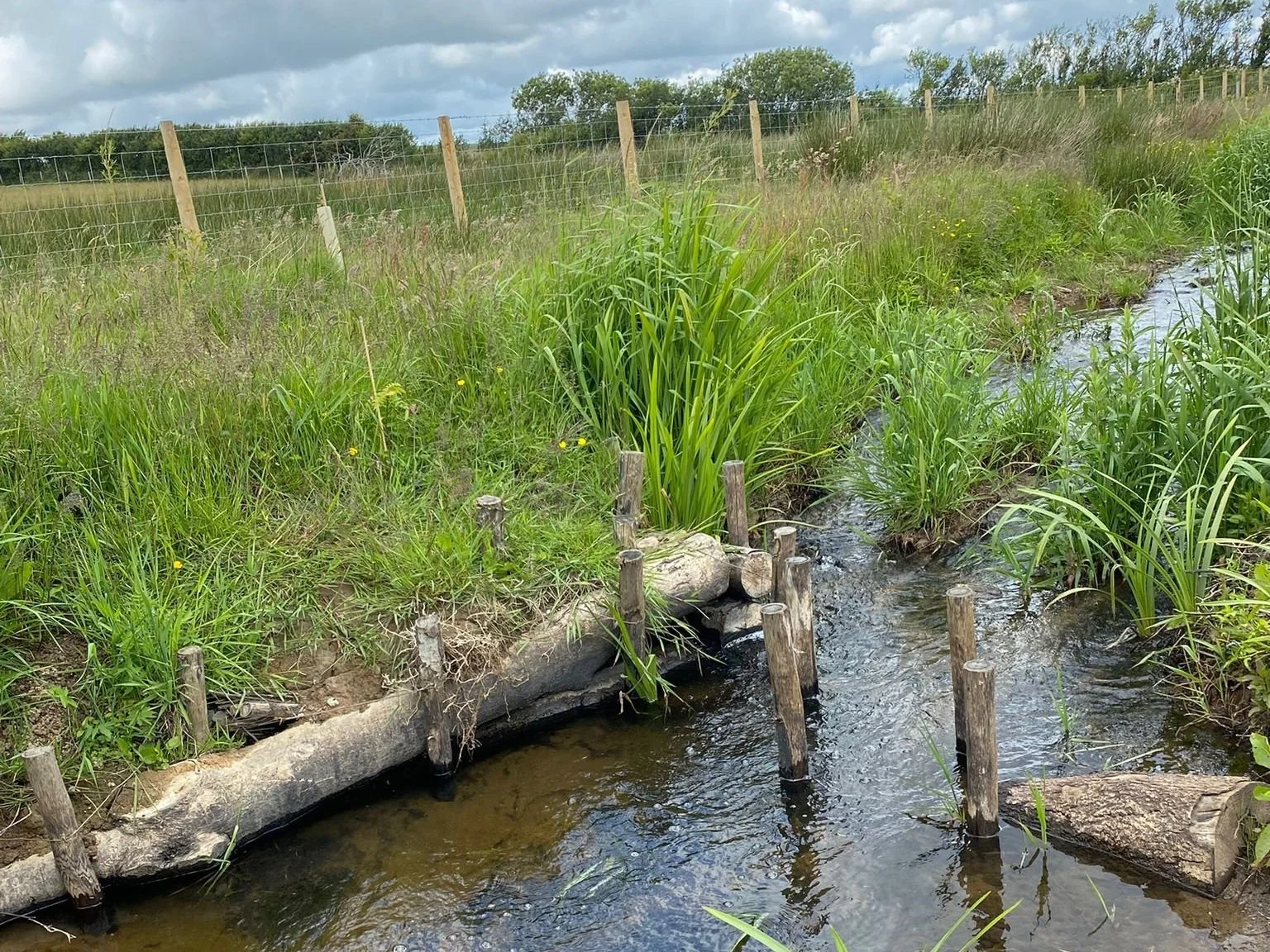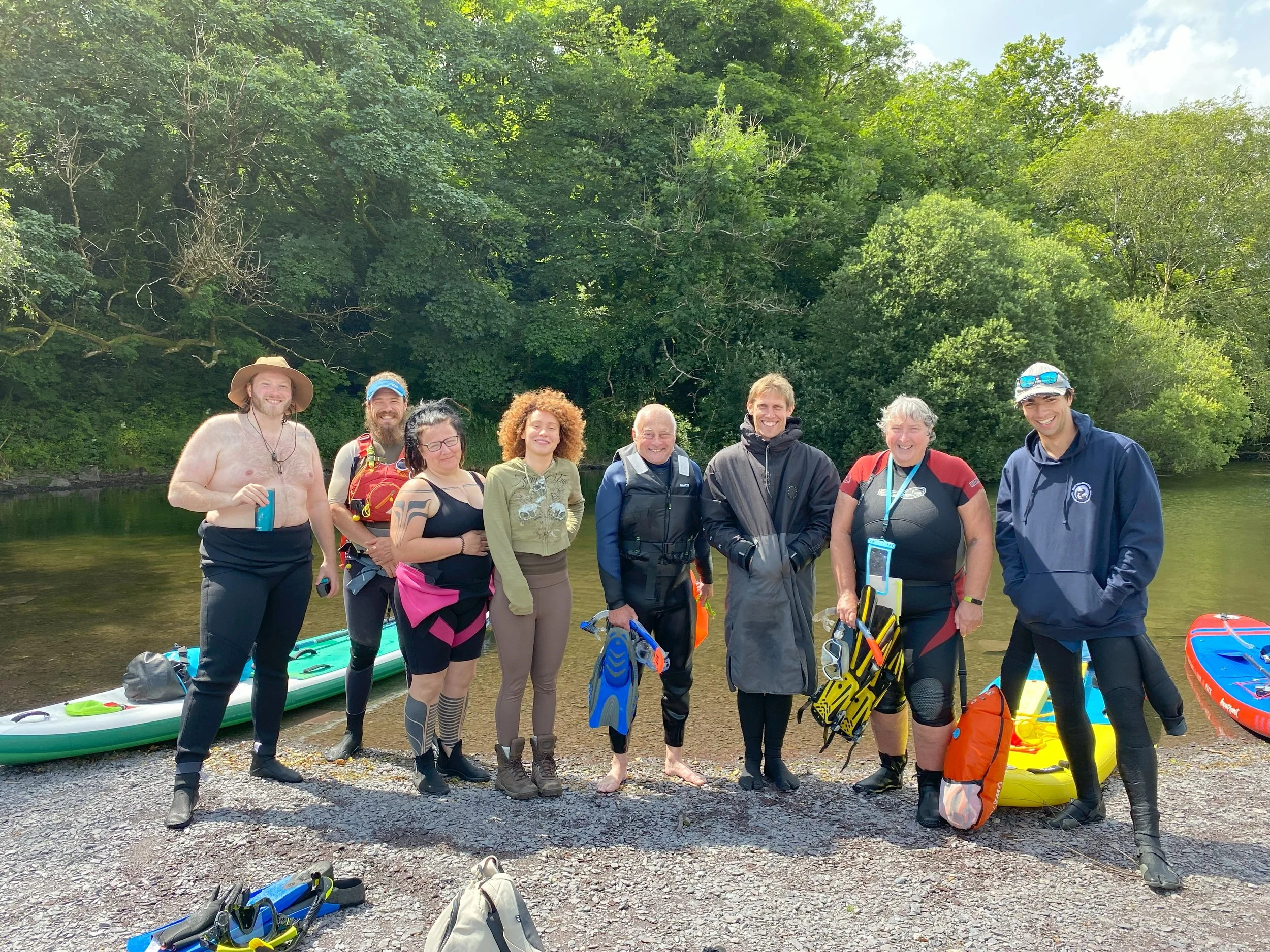
This project is funded by Local Nature Partnerships in partnership with Cyngor Ynys Mon, Cyngor Gwynedd and
Welsh Government
discover nature on your doorstep
objectives
-
Create immersive underwater nature trails in the Menai Strait and nearby rivers to showcase local aquatic life.
Train and certify community members in snorkeling, upskilling volunteers and provide opportunities to the local people.
Offer guided snorkeling sessions to educate locals and tourists on how to collect valuable conservation data on endangered and non native species.
-
Restore river ecosystems by improving in-river habitats, improving water quality through nature-based solutions like riparian planting, and cattle exclusion.
Open up passage for migratory fish
the importance of swimways
Swimways are natural migration routes used by aquatic species, such as fish, amphibians, and other water-dwelling organisms, to travel between different habitats. These routes are essential for species that rely on both freshwater and marine environments to complete their life cycles. Many species of fish migrate to specific breeding grounds, feed in different areas, and seek safer habitats depending on the stage of their life. Swimways are critical in facilitating these transitions and ensuring the survival of these species.
In Wales migratory fish species are facing significant challenges. A stark population decline has been observed, with migratory fish populations in the UK experiencing an 81% collapse between 1970 and 2020.
Our Swimways project attempts to tackle some of these issues.
Habitat Loss: Degradation of river habitats due to pollution, construction, and other human activities disrupts the natural migratory routes of fish species, making it challenging for species like salmon and trout to reach their spawning grounds.
Man-Made Barriers: Dams, weirs, and other structures in rivers act as physical obstacles, preventing migratory fish from traveling upstream or downstream as needed for their life cycles.
Climate Change: Altered water temperatures, flow patterns, and increased frequency of extreme weather events impact the migratory patterns and survival of fish populations.
Loss of Human Connection to Nature: As people become more disconnected from natural environments, there is less awareness and motivation to protect and restore vital ecosystems, leading to neglect and further degradation of habitats essential for migratory fish.
Water Quality: Agricultural runoff, industrial discharges, and untreated sewage introduce harmful pollutants into rivers, degrading water quality and creating hostile environments for migratory fish.
the issues facing fish
As part of our Swimways project extensive river restoration works have been carried out to protect and improve habitat for migratory fish.
River restoration is vitally important. Through simple actions like fencing livestock out, creating riparian buffer zones, and planting native trees we can significantly improve the health of our aquatic ecosystems.
Additionally, removing barriers such as weirs by notching or modifying them is crucial for restoring natural fish migration routes. These changes allow species like salmon and trout to access upstream spawning and feeding habitats, ensuring healthier fish populations and contributing to the overall biodiversity of our river systems.
River restoration
The works
In winter 2024, NWRT completed two riparian habitat schemes on the Afon Braint, a key river on Ynys Mon for brown and sea trout, both UK Priority Species. To address concerns about nutrient and soil run-off from agricultural activities, we installed 350 meters of stock fencing to prevent around 300 sheep and 60 cattle from entering the river and eroding its banks. A 350-meter riparian buffer zone (3–5 meters wide) was created, and 180 native trees were planted. These zones help intercept run-off, stabilize banks, provide shade and cover for trout, and increase terrestrial invertebrates—key to trout diets. Two drinking troughs were also installed, reducing livestock pressure on the river.
On a second site we installed 1,200 meters of stock fencing to prevent around 500 sheep and 20 cattle from entering the river and damaging the banks. Approximately 1.5 hectares of riparian woodland were created, with 850 native deciduous trees planted. A derelict bridge was repaired, allowing the closure of the ford to further protect the river. Additionally, an SPS solar water pump and five new drinking troughs were installed, providing an alternative water source for livestock.
Before
After
Re-wiggling & Natural Flood Management
At the Penhesgyn Wild Landfill site on Ynys Mon we undertook works to restore a stream that flows into the Afon Braint. This project involved re-meandering the cannalised sections, adding woody deflectors and other natural features to slow and diversify the flow. This has allowed the stream to start to form it’s own path and keep more water in the land.
NFM interventions at Penhesgyn
Accredited training
Through the creation of our North Wales Rivers Trust BSAC Snorkel Club we have been able to provide opportunities to explore and survey our rivers in a new way.
This initiative offers a fantastic range of opportunities for the community. By providing training courses for all skill levels, from basic skills courses to underwater surveying courses and registered snorkel guides, we empower individuals to explore the underwater world of our rivers safely and confidently.
The snorkel club promotes environmental awareness by encouraging people to engage directly with river ecosystems. Participants not only learn valuable snorkeling skills but also gain a deeper appreciation for the aquatic life and habitats they are helping to protect. It fosters a sense of community and shared responsibility for conservation, bringing together people of all ages and backgrounds to connect with nature in a meaningful way.
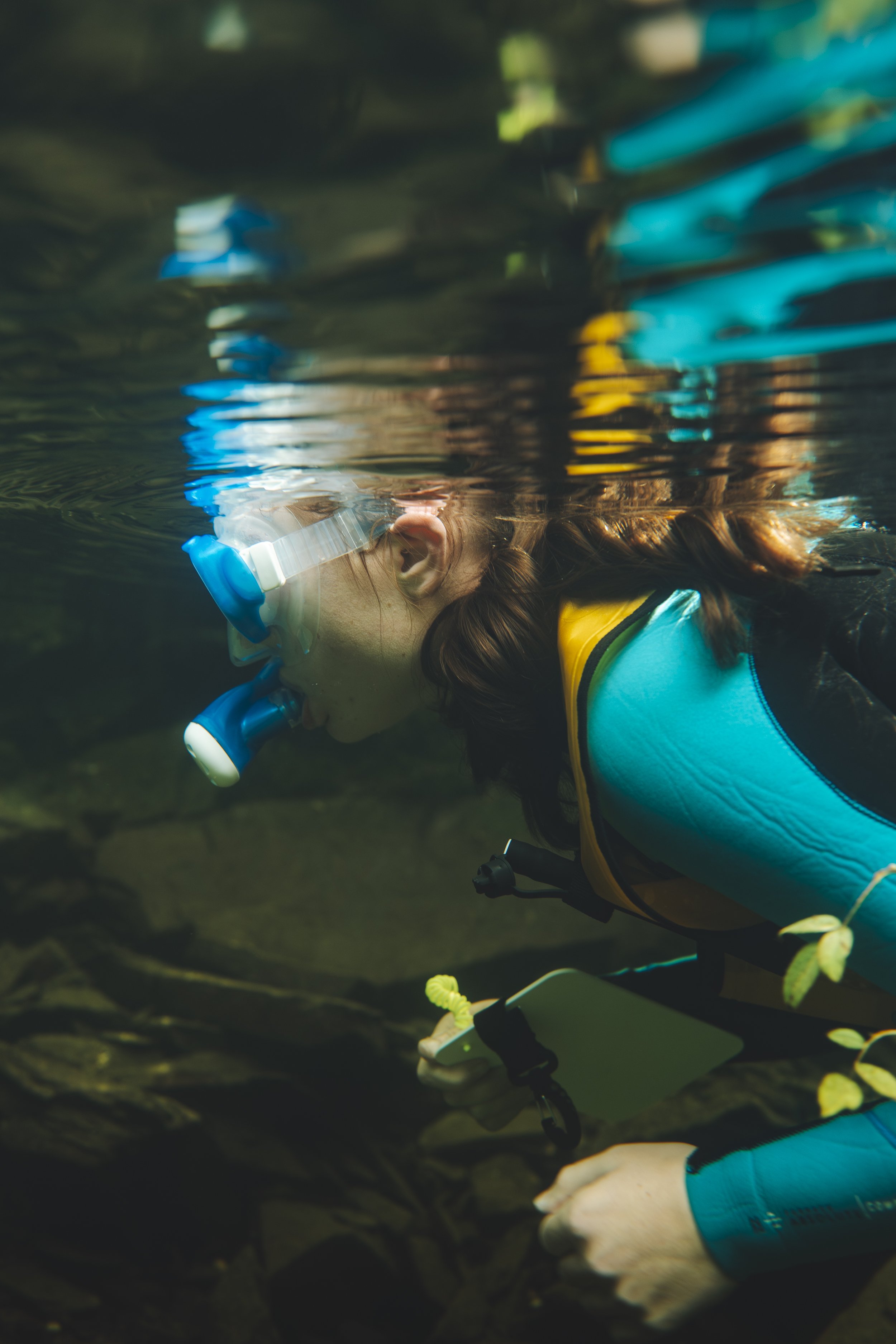
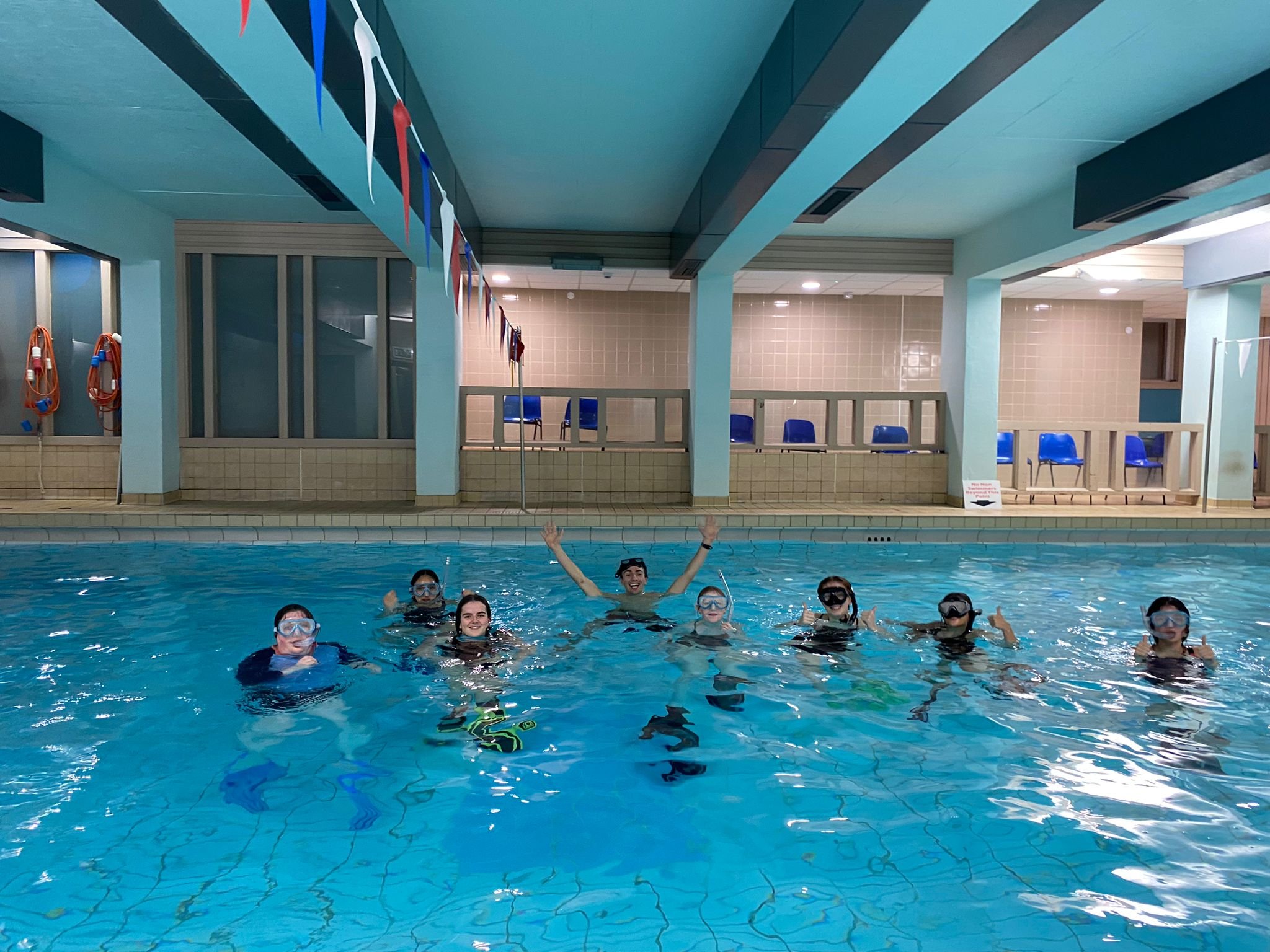
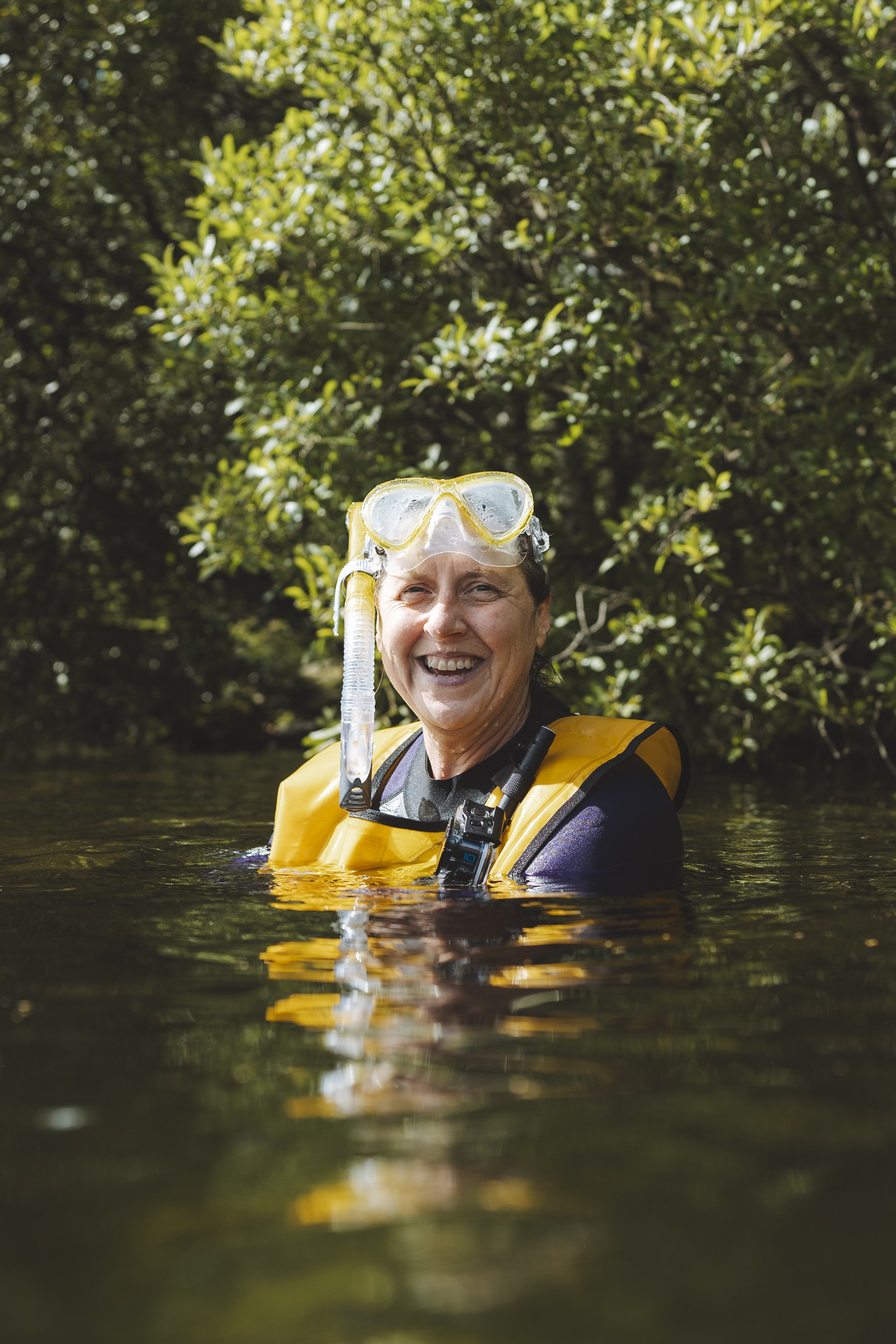

“providing volunteers with the opportunity to explore the world beneath the water has been integral to strengthening nature connection”
— Oisin Lowe-Sellers , Senior Community Engagement Officer
Our citizen science schemes allowed volunteers to assist with gathering baseline data ahead of restoration works as well as ongoing monitoring.
SMART RIVER HUBS
LAB DWR
Citizen Science
As part of our Swimways volunteer training, we set up a group of local volunteers who underwent Smart River Hubs accredited training programme. Trained participants learnt how to collect and identify freshwater invertebrates; key indicators of water quality using high level techniques.
By contributing valuable data and building local skills, the hubs support both community engagement and long-term river protection.
Swimways volunteers recorded water quality data as part of our Lab Dwr citizen science programme helping us to identify pollution incidents and target areas for future works. You can read more about the findings here.
